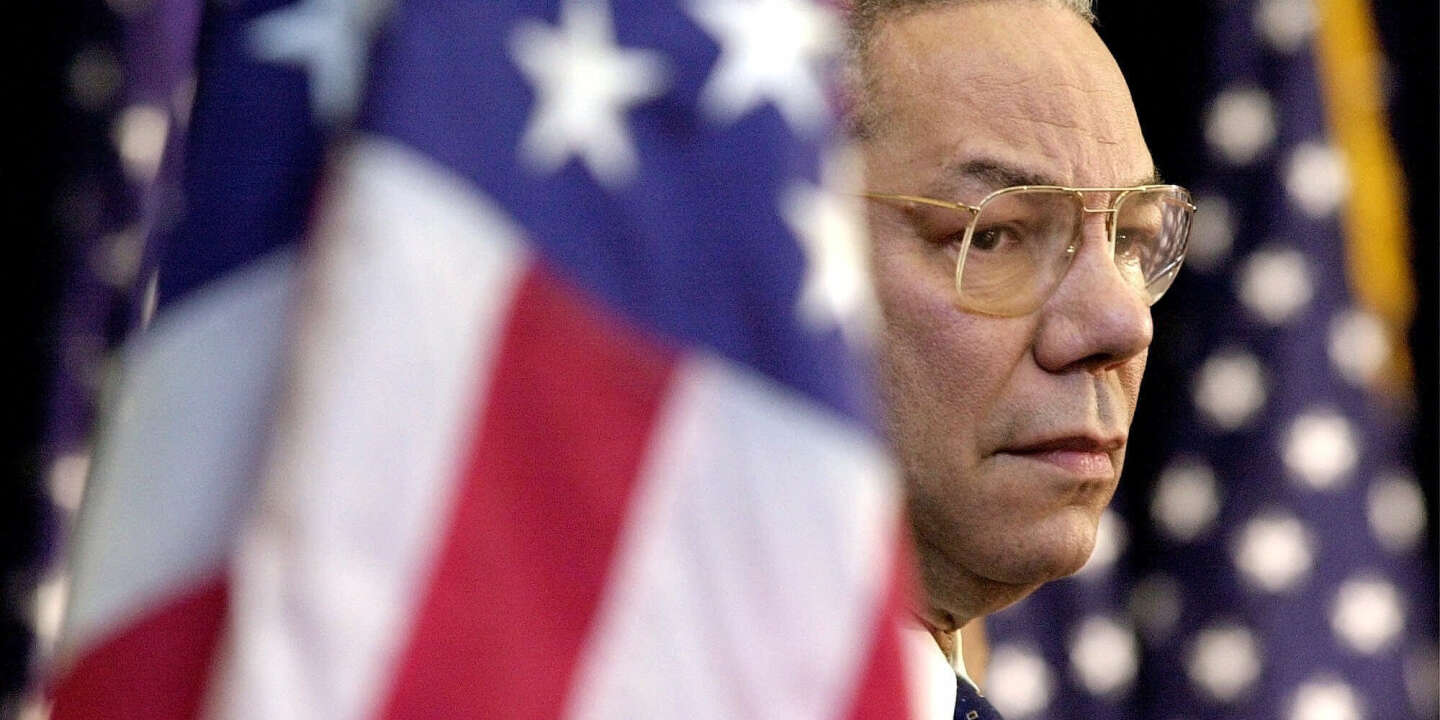Former US Secretary of State Colin Powell died on October 18, at the age of 84, at Walter Reed Military Hospital in Bethesda, Maryland, from complications from Covid-19. His family said he had been vaccinated but had multiple myeloma, a form of blood cancer that had weakened his immune system.
He will remain as the first African-American to have acceded to the posts of National Security Advisor (1987-1989, under the presidency of Ronald Reagan), of Chief of the Defense Staff (1989-1993), under George Bush. father and Bill Clinton, and head of US diplomacy (2001-2005), a post he held during George W. Bush’s first term, at a time of intense international tension over Iraq.
Born April 5, 1937, in Harlem (New York), into a family of Jamaican emigrants, Colin Powell is the embodiment of the American dream. In the Bronx, where he grew up, his father was a storekeeper, his mother was a seamstress. After high school, he enrolled at City College in New York, on a military scholarship. He graduated in geology and joined the army at age 21. He will remain there for more than thirty-five years, until 1993, and will show a discipline never denied.
He will also be a pioneer of racial integration in an army where he will experience segregation during training in the South, as he would remind the press years later, when George Bush Jr. called him in his cabinet after the presidential election of November 2000.
In 1958, he was stationed in Germany, then in Vietnam, where he was one of the first advisers sent in 1962 by John F. Kennedy to help Saigon’s army. He will make two stays there. In 1968, he returned with a medal for bravery. A survivor of a helicopter crash, he saved three comrades from the burning hulk of the plane, despite a broken ankle.
On his return, he was tasked with overseeing the investigation into the massacre in the village of My Lai, where a company of GIs killed several hundred civilians in 1968. The killing, which took place on March 16 in the southern hamlet Vietnamese, was not known until later, in November 1969. The victims, whose death toll is estimated between 347 and 504 people, were mainly old people, women and children. At the end of the investigation, Colin Powell finds nothing to complain about and affirms that the relations between the army and the Vietnamese population are “Excellent”.
“Reluctant warrior”
You have 76.21% of this article to read. The rest is for subscribers only.
–


